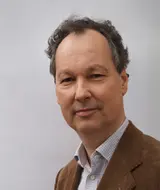The Gotha Research Centre (FZG) was founded by the University of Erfurt in 2004 to introduce scholars from all over the world to the historically significant Gotha library collections and to coordinate the Herzog Ernst Fellowship Programme established for this purpose by the Fritz Thyssen Foundation. Since then, the research centre has supervised more than 400 scholarship holders. The fellowship programme, which has been funded by the Ernst Abbe Foundation since 2020, has been consistently developed over the years – for example with the Hiob Ludolf Fellowship for established researchers. New fellowship formats have also been created, including the innovative Tandem Fellowship for the Global History of Ideas, which is supported by the Gerda Henkel Foundation. And the network of former students spans the globe and has already spawned numerous new collaborations.
More than nine million euros in third-party funds have been raised for scholarships and research projects since 2004. More than 1,000 publications have been produced in connection with ongoing projects at the FZG. These include smaller essays by short-term scholarship holders as well as monographs and editions based on longer-term research projects at the FZG. In addition, anthologies bring together the results of conferences. The colloquiums, conferences and cooperation events of the past 20 years add up to a total of more than 900 scientific events.
In addition to numerous other events planned for this year, the research centre will host the Early Modern Day, the biennial conference of German early modern historians, in autumn 2024.
To celebrate all these successes, the FZG will open its doors to interested guests on 20 June from 4 pm and present ongoing and completed projects. The future reference library of the research centre, which comes from the estate of Leipzig historian and library scientist Professor Detlef Döring, who died in 2015, will also be presented. It will be inaugurated at its new location at Hauptmarkt 17a/b in the presence of his widow and daughter. The festive event with invited guests will include greetings and a keynote speech by historian Professor Renate Dürr (Tübingen). She will speak about "Playing with hidden messages: On dealing with censorship in a collection of 18th century Jesuit texts". Afterwards, the birthday will be celebrated with all those present.


